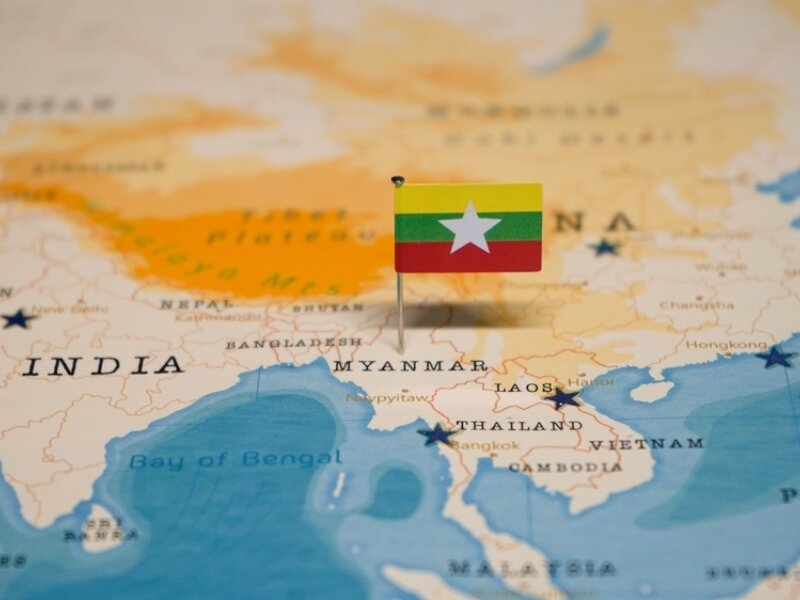The new Saudi method: the constructive approach
What strategic foundations underpin the development of Saudi Arabia's new international projection? The point of view of Mohammed Alsulami, President of the International Institute for Iranian Studies (RASANAH) in Riyadh

The Middle East continues to be a region of enduring regional and international conflicts and tensions, caused by geopolitical, cultural and religious reasons, and by competing interests. Saudi Arabia is located at the center of this region and is inevitably affected by it. Furthermore, it is considered an influential player for various reasons: firstly, it is geographically located between three continents, Asia, Africa, and Europe; secondly, it possesses considerable economic power, making it an important international player within the G20 - as one of the world’s top energy producers - especially following the energy supply crisis caused by the aftermath of the conflict in Ukraine. In addition, Saudi Arabia is considered as the home of Islam, the last of the heavenly religions, and as such, it can exert some influence on most Islamic countries that share religious beliefs with the sacred sites of Mecca and Medina.
Saudi Arabia has been able to take an independent and balanced stance in recent years, moving away from exhausting tensions, allowing it to avoid numerous conflicts while also protecting its economy, at a time when the global economy is in recession in most nations.
Furthermore, Riyadh has adopted a conciliatory stance towards other states, believing that the pursuit of its own interests does not necessarily have to entail damaging those of others, thus building its foreign policy on the realization of its interests and the creation of a system of balanced relations based on the concept of join participation and cooperation. In an interview with the American Fox News channel in September 2023, Saudi Crown Prince Mohammed bin Salman highlighted Riyadh's strategy towards its regional neighbors: “To achieve our goals, the region must be stable. Hence, we hope that all its countries enjoy the stability and security necessary for economic growth”. Saudi Arabia is therefore pursuing the strengthening of its economic position and its role as a reliable international player in the energy supply sector, a goal that requires a condition of stability and cooperation among states. The Kingdom also hopes to become a logistical hub for the region and the rest of the world, which requires increasing the capabilities and resources of neighboring countries to allow them to actively participate in this vision and to contribute to the security and integrity of ports and transportation routes.
One of the distinctive features of Saudi’s new realist path is the adoption of bold approaches to resolving complex problems. An example of this is their strained relationship with Iran, where in 2023 the long-standing disagreement with the Islamic Republic of Iran saw a resolution thanks to the intermediation of third parties. This reconciliation ended a decade-long state of acute tension between the two countries, that had caused a strong polarization in the area, which overshadowed most of the events and developments within it. As a result of this rapprochement between Saudi Arabia and Iran, there has been a series of subsequent regional agreements and a relative calm on the battlefront, as well as the return of Syria to the Arab League and the start of political negotiations between the warring parties in Yemen.
Furthermore, together with the United States of America, Riyadh has managed to present itself as an acceptable mediator - due to its neutrality - among the parties in conflict in the growing internal crisis of Sudan. Saudi Arabia has been trying to guarantee the security of the Sudanese people and the unity of its territory, and hosting, among other things, a series of talks that ended in declarations and agreements aimed at mitigating the severity of the Sudanese crisis and establishing rules for the protection of civilians.
It is Saudi Arabia’s firm belief that the events in the region and their developments have international implications. Hence, the efforts over the last year to activate and organize international meetings to discuss the most urgent issues, confirming its role as the main forum for regional, Arab, Islamic, and international summits. Indeed, the Kingdom hosted the Arab League Summit in May 2023, followed by the Arab Islamic Summit, to discuss the consequences of the events in Gaza, as well as having previously held an Arab-Gulf-American Summit and an Arab-Gulf-Chinese Summit in 2022 in Riyadh. Additionally, Saudi Arabia hosted four continental and regional summits in 2023 that highlighted Saudi’s proactive diplomatic approach, including the Gulf Summit with ASEAN countries, the Gulf Summit with Central Asian countries, the Saudi Summit with Caribbean countries (CARICOM), and the Saudi-African summit.
Year 2023 has been an exceptional year for the Saudi political journey at all levels, both locally and internationally, with clearly visible results regarding the “Vision 2030” development plan. It became clear that Riyadh has made significant progress in consolidating its foreign policy at global level, based on its philosophy of avoiding conflicts and solving existing problems. Following this philosophy, Riyadh decided to move away from policies of alliances and conflicts, trying to converge towards common interests with all proactive forces, always keeping as a key pillar the independence of its approach and its great caution towards the bets that the future holds. This vision and philosophy have guided Saudi diplomacy to build regional and global stability that strengthens the Kingdom's role as a regional power with global ambitions.
Saudi diplomatic activity is an indicator of Riyadh’s continental and global ambition; such activity strengthens its position in many areas of the globe and creates opportunities to build stability and multilateral relations for economic development. A striking example is Saudi’s intervention as a mediator to resolve the Ukrainian crisis. In fact, the Kingdom has managed to maintain an equal stand between the conflicting parties, communicating directly with both, thus managing to mediate the release of some Western prisoners in Russian hands, as well as providing humanitarian assistance to Ukraine and hosting the Ukrainian president at the Arab League Summit in Riyadh in early 2023. In addition, Saudi Arabia hosted an international meeting of National Security Advisors from over 30 countries and organizations with the goal of exchanging ideas on how to resolve the ongoing crisis in Ukraine. Lately, there have also been talks on a new round of mediation led by Riyadh, aimed at directing the crisis toward political paths that could prevent a potential international conflict.
What has contributed to maintain Saudi Arabia’s increasingly greater international stance is its progress in numerous international indexes. The country rose by five positions in the global “soft power” count, entering the top twenty countries worldwide - according to the index of the company “Brand Finance” - on criteria such as: global relations, familiarity and fame, reputation, influence, trade and business, government, cultural heritage, media and communication, people and values, sustainability, education, and science. These successes are linked to the objectives of the Kingdom's “Vision 2030” for global development, whose economic curve is expected to grow exponentially in light of Saudi Arabia’s increased international reputation over the past few years and its ability to implement balanced policies.



